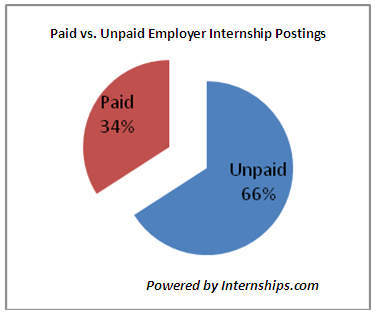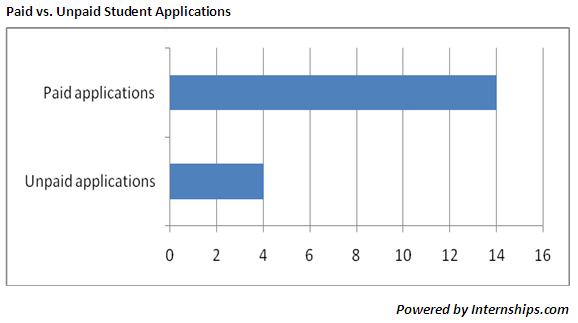
There's a lot to be said about the debate over unpaid internships. Is it an economic dilemma that employers need to tackle? Is it a social debate where public opinion will determine what's fair? Or is it a political (read: legislative) quandary for the government to figure out?
The answer is that it's all of the above which makes the overall debate complicated. To find a solution for these differing perspectives, we need to be able to compare apples to apples but we have an apple, an orange and a pear. So where do we go from here to figure it out?
Let's start with our apple: the employers. Currently, approximately 34 percent of internships listed on Internships.com are paid and those paid internships receive four times the quantity of applications than unpaid positions do. Making an economically sound decision in a capitalist society should be easy by looking at the bottom line.
Working with interns can help a company circumvent the substantial economic risks of inadvertently hiring a job-hopping new employee. While paying an intern minimum wage is less costly than hiring a new employee, investing the time and resources into training a new intern every season also adds up; therefore, it's understandable for employers to seek unpaid interns in exchange for teaching students the rules of engagement in the workplace, providing invaluable networking opportunities and office-breaking them by assigning routine tasks.
The trick is to find the right intern who fits well with the company's culture; and by offering financial compensation, the employer will have an exponentially larger pool of initial candidates to choose from. I've made employment offers to students who have interned for me and I consistently work with paid interns. I find their social networking expertise and input as digital natives interesting and useful.
In with the citrus twist of our debate are our student interns who are facing the worst economic recession and highest unemployment rates in decades. The decision to take an unpaid internship lies squarely on the shoulders of our best and brightest students. Rest assured, they have already set themselves apart at age 18 by going to college and choosing the upwardly mobile career track.
These young adults are very well-suited to solve the personal debate of whether or not they feel an unpaid internship is fair. Some students see the double penalty of not being paid directly by the employer and having to pay the college they attend for course credit: fair point.
Other students look at unpaid internships from the perspective of being able to vet their intellectual decision to enter an industry with real world experience and understand that their earnings are not lost, they are simply deferred. These are the students who see the return on their investment in themselves, placing a premium on the intangible benefits they attain like test driving their career, building their professional network, getting real world experience, having a competitive advantage over students who choose not to intern and increasing the probability that they'll be offered employment opportunities.
Roughly, seven out of 10 interns land an entry-level job with a company they've interned for and they can expect to recoup their deferred earnings from the unpaid internship by being offered a higher starting salary. According to NACE's 2010 Student Survey the median accepted salary offer for seniors with an internship was $45,301 -- nearly 31 percent higher than the $34,601 median accepted salary offer to non-intern seniors.
So how do we handle the socioeconomic inequity that underprivileged students face? Enter the pear of our predicament: the government. Michael Laracy posted the brilliant remuneration solutions of Ross Eisenbrey (vice president of the Economic Policy Institute) and Kathryn Edwards (research assistant) on that subject a few months back that I recommend reading here.
The good news is that, as the economy begins to recover, the percentage of paid internships will very likely increase because students will have more choices and will have the ability to be more selective. At that point the comparison of supply and demand will be a clearer picture. As the supply becomes more selective, the demand will respond with more enticing offers and, perhaps soon, we'll come closer to being able to compare apples to apples.

